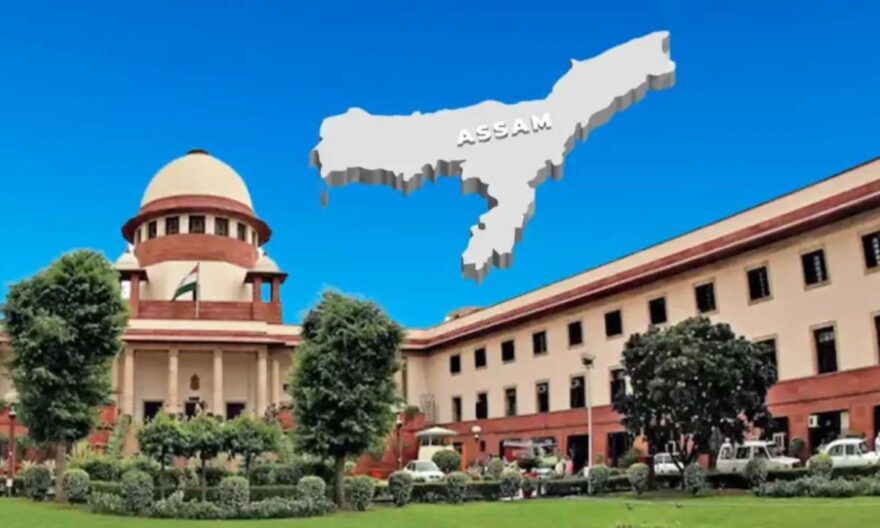
The Supreme Court on Thursday scheduled November 7 to hear petitions challenging the constitutional validity of Section 6A of the Citizenship Act, which was added as an amendment in 1985 to implement the Assam Accord. A five-judge Constitution bench, led by Chief Justice DY Chandrachud and comprising Justices AS Bopanna, MM Sundresh, JB Pardiwala, and Manoj Misra, will preside over the case on the rescheduled date. Originally, the case was listed for hearing on October 17 but was moved to November 7 due to the next week being designated as a miscellaneous week in the apex court.
Solicitor General Tushar Mehta informed the bench that the court had initially fixed the hearing for October 17 but later discovered that the entire week was designated as a miscellaneous week. Consequently, the case was rescheduled for November 7, as confirmed by the Chief Justice.
In the previous hearing, the Apex Court had decided that the proceedings would be titled, “In Re: Section 6A of the Citizenship Act, 1955.”
The matter concerning citizenship in Assam was initially referred to a five-judge Constitution bench on December 17, 2014. The apex court later constituted the bench on April 19, 2017, to handle the case.
The National Register for Citizens (NRC), a comprehensive list of Indian citizens containing essential identification information, was first established after the 1951 national census. The Assam NRC was specifically designed to identify illegal immigrants in the state who had migrated from Bangladesh after March 25, 1971.
In 1985, the Indian government, in collaboration with representatives of the Assam Movement, negotiated and formulated the Assam Accord, outlining various categories of immigrants. The NRC exercise in Assam was conducted under Section 6A of the Citizenship Act, 1955, and the rules established in the Assam Accord of 1985.
Section 6A was introduced to implement the Assam Accord and provides the framework for determining the Indian citizenship status of migrants in Assam, including potential expulsion, based on their date of migration. The provision stipulates that individuals who came to Assam on or after January 1, 1966, but before March 25, 1971, from specified territories, including Bangladesh in 1985, and have since become residents of Assam, must register for citizenship under section 18. Thus, March 25, 1971, is established as the cutoff date for granting citizenship to Bangladeshi migrants in Assam.
In 2013, the Supreme Court directed the State of Assam to update the NRC. On July 30, 2018, the final draft of the Assam NRC was released, resulting in the exclusion of 40.07 lakh applicants out of 3.29 crores, leading to uncertainty about their citizenship status. However, the apex court clarified that the draft NRC was preliminary, and no action could be taken based on it. On August 31, 2019, the final NRC list was published, with 19 lakh individuals being excluded.
Back in 2012, the Assam Sanmilita Mahasangha, a Guwahati-based civil society organization, along with others, challenged Section 6A, arguing that it is discriminatory, arbitrary, and illegal in providing different cutoff dates for regularizing illegal migrants who entered Assam compared to the rest of India.
The influx of migrants to India, especially from Bangladesh, was triggered by the Bangladesh Liberation War, which led to the independence of Bangladesh from Pakistan. Migration had already commenced before Bangladesh’s independence from East Pakistan in 1971. On March 19, 1972, Bangladesh and India entered into a treaty for friendship, cooperation, and peace.




